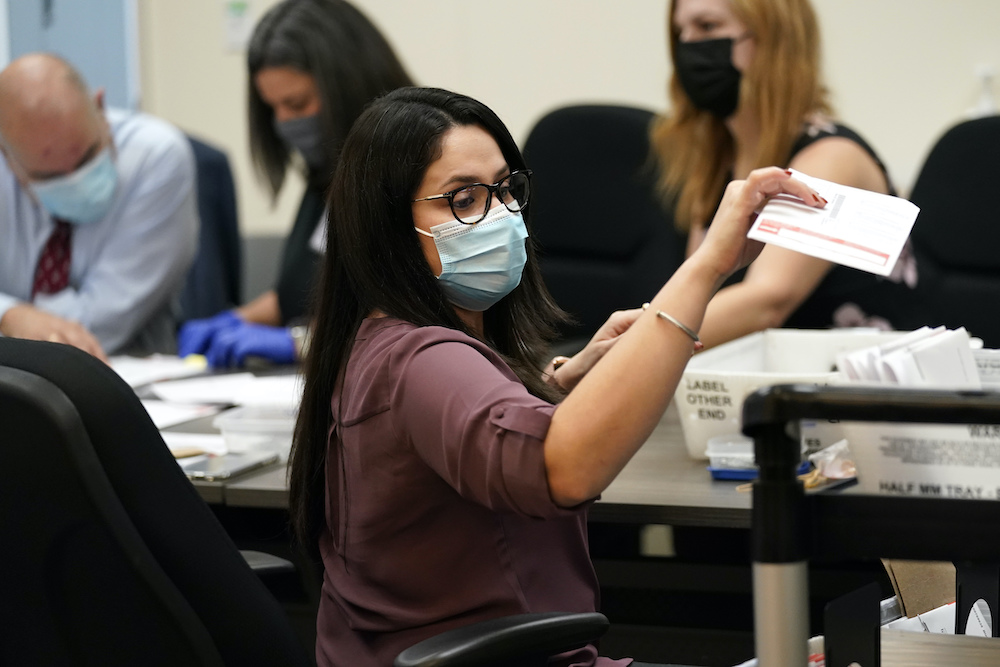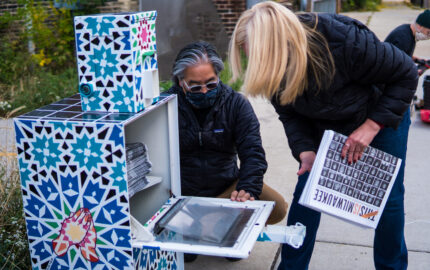With the U.S. election less than a week away, every major news organization is honing its coverage plan. Collectively, we’re fully aware that we must avoid premature “calls” that don’t reflect the complexities of early voting, potential voter suppression, and multiple legal challenges.
But there’s so much more to getting election coverage right — and to generating trust at a time of profound distrust in so much of the media. As a global news organization with a nearly 170-year history of speed and accuracy, Reuters has a clear view of how to do this. Our Trust Principles, embedded in our charter and overseen by an independent board, hold us to “integrity, independence and freedom from bias.” From this standard, we’ve adopted practices that we work hard to maintain, even as many in the industry have taken sides during the Trump years, with polarization challenging the news business as it has swept the country.
The fundamentals are pretty basic but nonetheless worth repeating. When it comes to the election, the pandemic, and everything else we cover, we build trust when we are trustworthy. That means:
- Keep an open mind in conceiving a story, rather than starting with a pre-conceived thesis.
- Go where the facts take us, no matter what, rather than where we personally might want to go.
- Don’t surprise the subjects of our stories about what we are going to say about them and provide them with written questions even when they decline to be interviewed.
- Give them a fair opportunity to respond, and provide their perspective fairly, rather than merely plugging it in as an afterthought.
- Write honestly, prominently disclosing what we don’t know as well as what we do know. Journalism requires humility: Our ability to get the full picture is often limited, and we need to recognize that and share it.
- Don’t let speed turn into haste: Be just as fast as the facts allow.
- At a time of distrust in journalism, do more to share one’s standards and provide the backstory of how a story was reported — and especially how it was sourced.
- Recognizing our fallibility, correct mistakes fully and fast.
Ultimately, our goal — our usefulness — is to help our customers make better-informed decisions, not to try to sway them to vote one way or another or to see the world from one political perspective or another. That’s why we avoid loaded language and instead describe statements and behaviors in detail, in context, and without characterizing them with conclusory adjectives.
In teaching journalistic ethics, a mentor of mine, Barney Calame, made a point of deriding the use of the word “posh” to describe a hotel where corporate executives were staying. Just tell us the cost of the rooms and describe the décor, and let readers decide if, by their standards, it is “posh,” he’d say.
It was great advice, with application in all spheres of coverage. Provide the facts and the context, aim for objectivity as a goal even as one understands that it is not entirely attainable. Hone our skills at sourcing, fact-gathering, sorting confirmed information from unfounded rumor. Write without agenda. Then leave it to the reader and the viewer to put our work to use. This isn’t a recipe for “he said-she said” journalism or false equivalency. It’s a prescription for trusted journalism that performs a true public service.
A global perspective helps. We report independently in more than 120 countries, where — in an increasing number of instances — the media is unwelcome and under attack. I’m especially proud of our ability to report robustly in these places even as we encounter censorship, legal prosecution, visa denials, and even physical threats to our journalists.
We respond by doing our best to protect our journalists, by reporting fairly and honestly, by doggedly gathering accurate, often hard-to-get information — and by remaining strictly impartial. We write rarely about ourselves but instead seek to focus on the issues that matter in the lives of our readers and viewers.
In the upcoming U.S. election, we will follow the same path that we tread globally. We’ll deliver reliable real-time election results via a collaboration with the National Election Pool, so customers and readers can see for themselves where the results are headed. We’ll strive to verify the information we receive, provide it to our customers quickly but with care, clearly identify falsehoods and distractions, and avoid slanting the story to fit anybody’s point of view. We’ll be imperfect, of course, but we will do everything in our power to be trustworthy.
Stephen J. Adler is editor-in-chief of Reuters.



